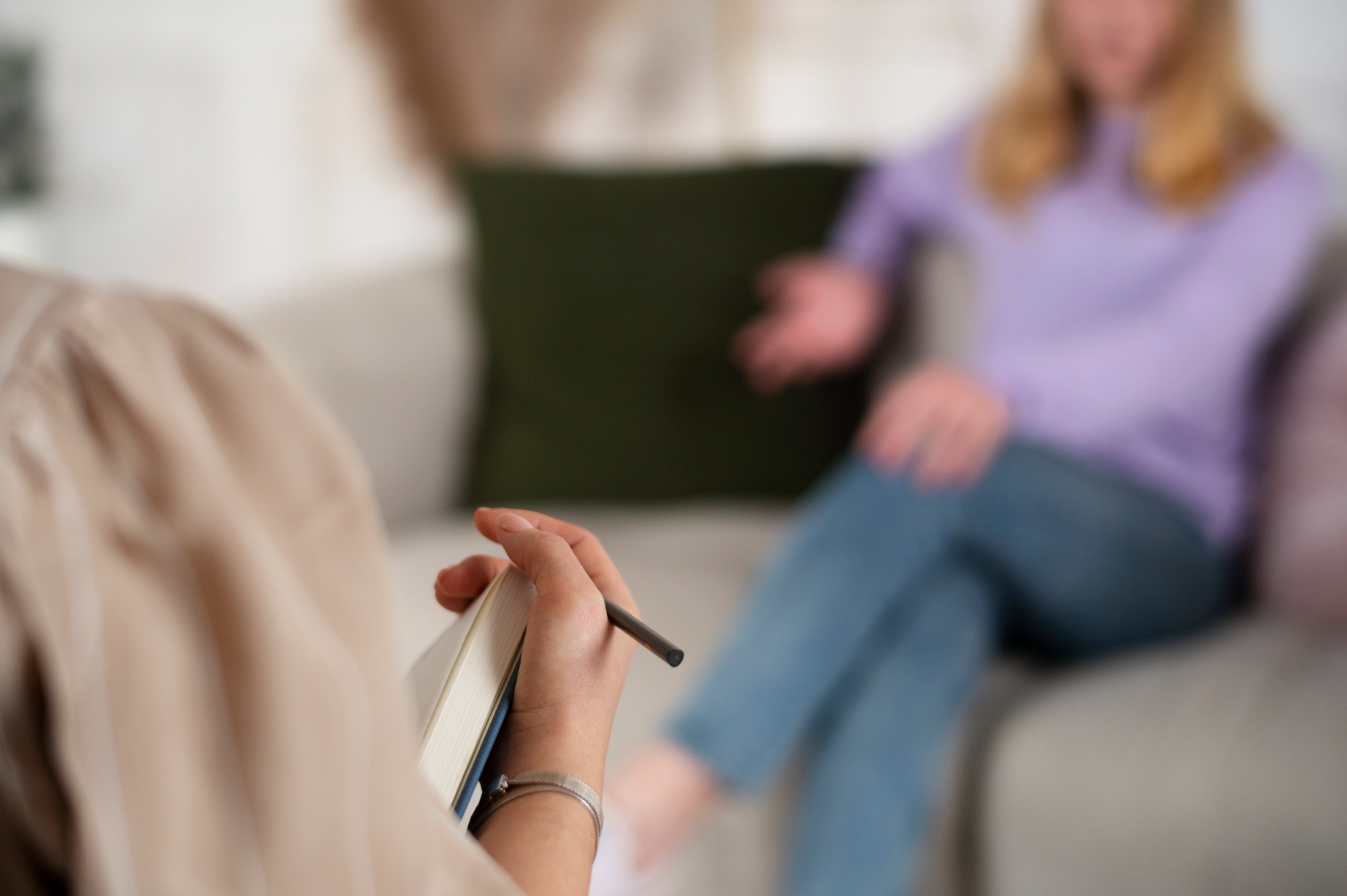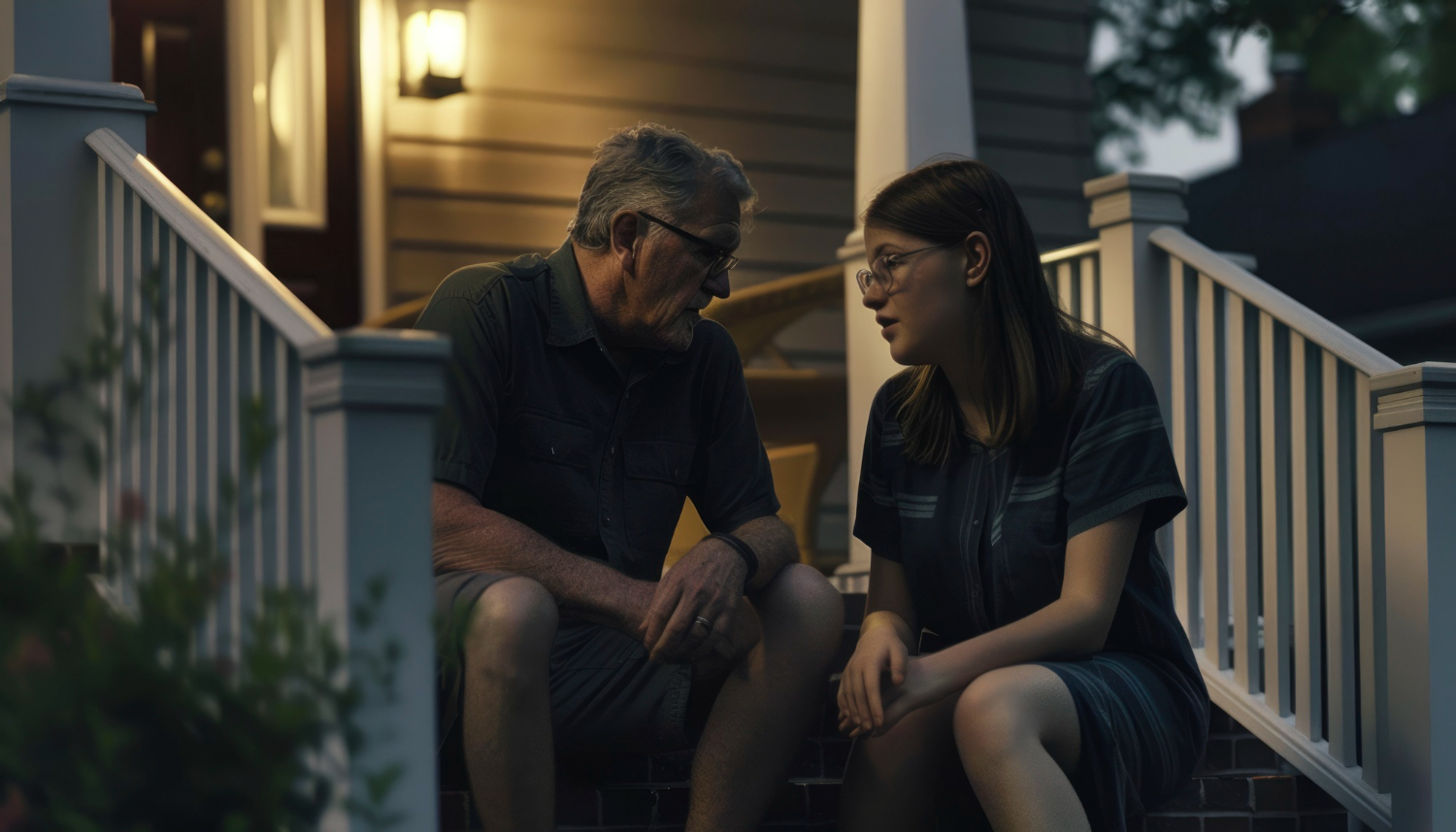Experiencing loss fundamentally changes our relationship landscape. Whether through death, divorce, or significant life transitions, grief reshapes how we connect with others and ourselves. According to the American Psychological Association, approximately 10-20% of bereaved individuals experience complicated grief that significantly impairs their ability to form and maintain relationships for extended periods.In this comprehensive guide, we'll explore evidence-based strategies for rebuilding your social connections after loss, understanding the unique challenges involved, and creating space for both honoring your grief and opening yourself to new meaningful relationships.
Understanding How Grief Affects Your Relationships
Grief doesn't merely impact your emotional state—it transforms your entire social ecosystem. Research published in the Journal of Death and Dying shows that 78% of bereaved individuals report significant changes in their relationship dynamics following a major loss.
The Ripple Effect of Loss
When you experience a significant loss, the effects ripple through your social connections in several ways:
- Identity shifts: Your self-perception changes, particularly if your identity was closely tied to the person or role you lost.
- Social awkwardness: Friends and family often struggle with what to say, creating uncomfortable interactions.
- Energy limitations: Grief consumes emotional energy, leaving less capacity for nurturing relationships.
- Changed perspectives: Your priorities and values may shift dramatically, affecting compatibility with existing relationships.
A study from the University of California found that approximately 60% of grieving individuals report feeling disconnected from their pre-loss social circles within the first year following their loss.
The Dual Process of Grieving and Connecting
Psychologists Margaret Stroebe and Henk Schut developed the Dual Process Model of grief, which explains how people oscillate between loss-oriented (focusing on grief) and restoration-oriented (focusing on rebuilding) activities. This model provides valuable insights into why relationship-building after loss requires a balanced approach.
Self-Connection: The Foundation for New Relationships
Acknowledging Your Changed Self
According to Dr. Therese Rando, a renowned grief expert, loss creates a "psychosocial transition" where your internal sense of self undergoes profound transformation. Before attempting to build new relationships, take time to understand:
- How your values may have shifted
- What you now need from relationships
- Which parts of yourself feel most changed
- What personal boundaries you need to establish
A survey by the Grief Recovery Institute found that 68% of respondents reported feeling like "a different person" after major loss, highlighting the importance of this self-reconnection process.
Grief Work as Relationship Preparation
Counterintuitively, deeply engaging with your grief can strengthen your capacity for future relationships. Research published in Death Studies suggests that individuals who allow themselves to fully process grief develop greater emotional intelligence and empathy—qualities that enhance relationship formation.Consider these approaches to grief work:
- Journaling: Document your grief journey to track changes in your emotional landscape
- Grief counseling: Professional support creates a safe space to explore feelings
- Grief groups: Shared experiences reduce isolation and normalize grief responses
- Grief rituals: Create meaningful ways to honor your loss while moving forward
Navigating Existing Relationships Through Loss
Managing Changed Dynamics
Loss often reveals the strength and limitations of your existing relationships. A Harvard Medical School study found that approximately 25% of grieving individuals experience significant deterioration in at least one close relationship within the first year of loss.To navigate these shifting dynamics:
- Communicate your needs: Be direct about what support looks like for you
- Set boundaries: Limit interactions with those who drain rather than support you
- Accept relationship evolution: Some relationships may naturally fade as your life changes
- Appreciate different support styles: People express care in various ways
When Friends Don't Understand
The "empathy gap" between those experiencing grief and those who haven't faced similar losses can cause relationship strain. Research from the University of Memphis shows that 73% of grieving individuals report feeling misunderstood by at least some friends or family members.To bridge this gap:
- Educate gently: Share articles or resources about grief with close friends
- Focus on receptive relationships: Invest more in people who demonstrate willingness to understand
- Express specific needs: Replace "support me" with specific requests like "I need someone to listen without trying to fix things"
- Find grief peers: Connect with others experiencing similar losses
Opening to New Connections After Loss
Timing Your Social Re-engagement
There's no universal timeline for when you "should" start building new relationships after loss. A longitudinal study in the Journal of Personality and Social Psychology found healthy relationship formation occurring anywhere from 6 months to several years after significant loss, depending on individual circumstances.Signs you might be ready to expand your social connections include:
- Experiencing periods of genuine enjoyment without guilt
- Finding yourself curious about others' lives
- Having emotional energy to invest in new connections
- Feeling secure in your grief identity
Starting Small: Low-Pressure Social Opportunities
Research from the University of Chicago suggests that gradual social exposure benefits grieving individuals. Consider these low-pressure ways to practice social connection:
- Activity-based gatherings: Events focused on shared activities reduce social pressure
- Time-limited engagements: Coffee meetings rather than all-day commitments
- Group settings: Classes or volunteer opportunities where individual interaction is optional
- Online communities: Digital spaces allow engagement at your comfort level
Building Meaningful Relationships That Honor Your Loss
Authenticity in New Relationships
A study published in OMEGA—Journal of Death and Dying found that 82% of grievers report that acknowledging their loss is important in new meaningful relationships.Consider these approaches:
- Appropriate disclosure: Share your loss experience when it feels natural
- Watch for receptiveness: Notice how potential friends respond to vulnerability
- Value empathetic responses: Prioritize connections with those who can sit with difficult emotions
- Look beyond fixing language: Appreciate those who don't try to "solve" your grief
Finding Peers Who Understand Loss
While shared grief experience isn't necessary for meaningful connection, many find comfort in relationships with others who understand loss. Approximately 65% of individuals who join grief support groups report forming at least one significant ongoing relationship, according to the National Alliance for Grieving Children.Places to find these connections include:
- Formal grief support groups: Organizations like GriefShare offer structured support
- Cause-related organizations: Foundations related to your loss often host community events
- Online grief communities: Platforms like Refuge in Grief or Option B connect grievers
- Memorial events: Annual remembrances can connect you with others sharing similar experiences
Cultivating Relationships That Support Continued Bonds
The Continuing Bonds Theory
Modern grief theory recognizes that healthy grief doesn't require "letting go" of the deceased but rather finding new ways to maintain connections. Research by Dennis Klass suggests that relationships that acknowledge and support these continuing bonds tend to be most supportive for grieving individuals.Look for friends who:
- Remember and speak your loved one's name
- Understand that special dates might remain significant
- Support rituals that honor your ongoing connection
- Don't pressure you to "move on" or "find closure"
Creating Space for Both/And Relationships
The most supportive relationships after loss embrace what therapists call "both/and thinking"—the understanding that you can both grieve deeply AND experience joy, both honor the past AND create a new future.A study in the British Journal of Psychology found that relationships supporting this dual capacity were associated with better psychological outcomes for bereaved individuals.
Practical Strategies for Relationship Building After Loss
Pacing Yourself: Quality Over Quantity
Research consistently shows that the quality of social connections has a greater impact on wellbeing than quantity. A study from Michigan State University found that for grieving individuals, even 1-2 high-quality supportive relationships significantly reduced depression symptoms compared to larger networks of casual connections.Try these approaches:
- Set realistic social goals: Perhaps one meaningful interaction per week
- Build recovery time: Allow yourself space between social engagements
- Prioritize depth: Focus on developing fewer, deeper connections rather than many surface relationships
- Check in with yourself: Regularly assess your emotional capacity for engagement
Communication Skills for the Grieving
Grief can alter your communication patterns in ways that impact relationship formation. Psychological research identifies several helpful adaptations:
- Name your grief presence: Simple phrases like "I'm having a harder grief day" help others understand your needs
- Set conversation boundaries: It's okay to say "I'd rather not discuss that right now"
- Practice grief disclosure: Consider in advance how you'll answer common questions
- Develop redirection skills: Prepare ways to shift conversations when needed
Relationship Red Flags After Loss
Protecting Yourself from Unhealthy Connections
Research from the University of New South Wales suggests that grieving individuals may temporarily have reduced capacity to identify relationship red flags. Be particularly cautious about:
- People who romanticize your grief or find it fascinating
- Connections that intensify very quickly
- Individuals who pressure you to "move on" from grief
- Those who seem uncomfortable with your emotional reality
- People who use your vulnerability to establish dependency
When Professional Support Is Needed
According to the American Psychological Association, approximately 15% of bereaved individuals may benefit from professional support for relationship formation. Consider reaching out if:
- You find yourself consistently isolated despite wanting connection
- All relationships feel overwhelming for an extended period
- You notice patterns of unhealthy relationship choices
- Your grief significantly intensifies in social situations
Embracing Transformation Through Connection
Post-Traumatic Growth in Relationships
While grief is painful, research on post-traumatic growth suggests that many people ultimately develop deeper, more meaningful relationships after loss. A landmark study published in the Journal of Social and Clinical Psychology found that 73% of individuals who experienced significant loss reported enhanced capacity for intimacy and authenticity in relationships within five years.This transformation often includes:
- Greater appreciation for authentic connection
- Enhanced empathy and emotional intelligence
- More selective but deeper relationship investments
- Increased capacity to discuss meaningful life questions
Creating a Diverse Relationship Ecosystem
Mental health experts suggest that after loss, developing a varied relationship network provides the most robust support. This might include:
- Grief witnesses: People who knew your loved one and share memories
- Practical supporters: Those who help with concrete needs
- Joy companions: Friends who connect you with pleasure and lightness
- Growth partners: People who understand and support your evolution
- Stability anchors: Connections that provide consistency through change
Conclusion: The Ongoing Journey of Connection
Cultivating meaningful relationships after loss isn't a linear process or a task to be completed. Rather, it's an ongoing journey of opening yourself to connection while honoring how grief has changed you. Each relationship becomes part of your evolving story, potentially adding richness and depth to a life transformed by loss.Remember that your capacity for connection may fluctuate, especially around significant dates or grief triggers. With compassion for yourself and clear communication with others, you can gradually build a supportive community that embraces both your grief and your continuing life.By investing in relationships that honor your full experience, you create space for what grief expert David Kessler calls "the sixth stage of grief"—finding meaning. Within the embrace of understanding connections, many discover that their loss, while never diminished in significance, becomes integrated into a life still capable of profound joy and meaning.





























